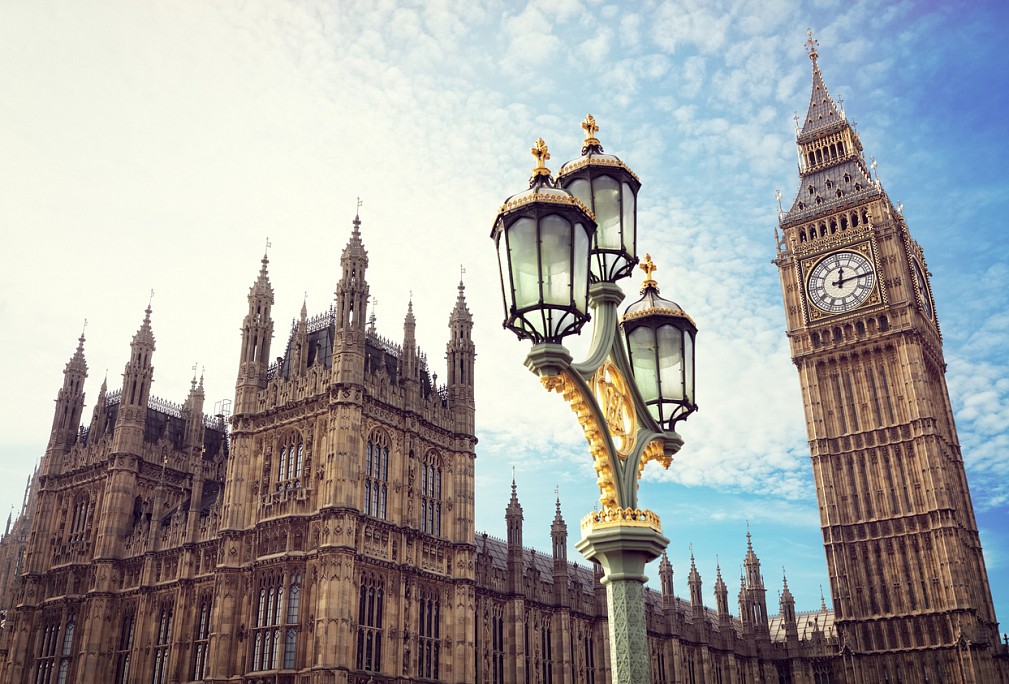Last updated 8th July 2024, by Admin
Whether you're new to teaching, or just want to brush up on your knowledge of British Values, this post will provide you with everything you need to know. Use the links to jump to different sections:
- What are British Values in Education & where did they come from?
- What are the 5 British Values in Education?
- Why should schools teach British Values?
- How to embed British Values into the school curriculum
- Creating a British Values Display
- Writing a British Values School Policy
- Promoting Fundamental British Values as part of SMSC in schools
What are British Values in Education & where did they come from?
For schools in the UK, British values refers to a set of values that the government believes are important for children to learn. They are sometimes referred to as Fundamental British Values or Core British Values and they include respect for the rule of law, individual liberty, democracy, and mutual respect for and tolerance of different faiths and beliefs. The promotion of these values in schools is part of the government's efforts to create a more cohesive and integrated society, as well as as a way to protect children from extremist ideologies.
The promotion of British values began after the terrorist attacks in London in 2005. After the attacks, the government introduced a number of policies and initiatives anaimed at promoting British values in schools, including the PREVENT program, designed to prevent radicalisation and extremism.
What are the 5 British Values in Education?
1. Respect for the rule of law
Respect for the rule of law means that everyone in society is treated equally and fairly, and that everyone follows the same rules and laws. This value promotes a sense of order and stability in society, and helps to prevent crime and other harmful behaviors. The UK justice system is a large part of this, including laws, police officers and courts.
2. Individual liberty
Individual liberty allows people to pursue their own goals and interests, providing they do not harm others. This British value is based on the idea that people should be free to make their own decisions and choices within the bounds of the law, of course.
3.Democracy
Democracy is the foundation of the UK's political system. This British value is based on the idea that everyone should have an equal say in how their country is run, and that the government should be accountable to the people. All things voting, elections and referendums come in to play here.
4. Mutual respect and tolerance of different faiths and beliefs
There is some confusion around the fourth Bitish Value, which is often split into two: (1) Mutual respect and (2) tolerance of different faiths and beliefs. Whether you view these as one whole, or as two individual values, they both promote understanding and acceptance of people from different backgrounds and with different beliefs, and help to create a more inclusive and diverse society.

Why should schools teach British Values?
Schools in the UK have a responsibility to promote British values, as outlined in the Department for Education's British Values guidance (last updated in 2014). This means that teaching and learning about British values should be an integral part of the school experience, and should be reflected in all aspects of school life.
They are seen as being fundamental to British society and as promoting cohesion and integration. The promotion of these values is also seen as a way to protect children from extremist ideologies and to help prepare them for life in modern Britain.
It goes without saying that our world is changing ever more rapidly; recent events like the pandemic, global elections, humanitarian crises, and the rise of extreme views such as misogyny are galvanising young people to take a stand. More often than not, they do this via social media, an avenue which, to many of us, remains less well-trodden. With the government guidelines not being updated since 2014, so keeping these relevant for students who either weren't born when they were written or have lived most of their lives since then is paramount.
How to embed British Values into the school curriculum
In terms of the curriculum, British values are typically taught across a number of subjects, including history, citizenship, and personal, social, health, and economic (PSHE) education. This could include learning about the development of democracy in the UK, or about the struggles and achievements of different groups within British society in history lessons. In citizenship lessons, students may learn about the role and responsibilities of citizens in a democracy, or about how to participate in the democratic process. And in PSHE lessons, students may learn about the importance of mutual respect and tolerance, and how to communicate and resolve conflicts in a respectful manner. For a more detailed view including many examples read this post on how to embed British Values into the classroom.
Alternatively, a VotesforSchools subscription ensures full coverage of British Values in a whole-school approach or learning about current affairs. Through weekly lessons on a range of topics, from politics to extremism to the environment, we provide schools with all of the curriculum documents needed to show how your school meets the British Values criteria (as well as SMSC & Prevent). You can trial a VotesforSchools lesson here.
Creating a British Values Display
According to the UK government's guidance on promoting British values in schools, there is no specific requirement for schools to have a display on British values. However, displaying posters or artwork that promote British values can be a powerful way to reinforce their importance and help students understand what they mean in practice. It can also serve as a visual reminder of the school's commitment to promoting British values and provide a welcoming and inclusive environment for all students, regardless of their background. To help you create a memorable British Values display in your classroom, we've created this set of free display materials for you to download.



Writing a British Values School Policy
There are 5 key steps needed to create a British Values Policy in your school:
- Firstly, start by taking stock of your school. Consider what British values mean to your school and how they align with your school's ethos and goals. You want to use this stage to develop a clear understanding of what British values are and how they should be reflected in policies and practices for your setting.
- Next, you'll want to involve other people, both to make sure you've got the full picture, and to ensure that everyone is informed about what you're doing. Consult with staff, students, parents, governors and even the wider community to gather ideas on how British values can be promoted in your school. This can help to ensure that your British values policy is inclusive and reflective of the school community's needs and interests, as a village school in a rural part of the country is very likely to have a different makeup to an inner city school.
- It's time to put your research into words! Take some time to look through all of the information that you've gathered and begin developing a clear and concise British values policy that outlines what British values are, how they will be promoted in the school, and how your school will monitor and evaluate their implementation. A quick search on Google will throw up lots of schools own policies to help guide you.
- Once the policy has been developed, you'll want to communicate it to all members of the school community. You want everyone to be aware of their responsibilities in promoting British values, and to feel that they know how to do it. Here is a good time to provide training and support to staff, to help them understand and implement the policy. You can take it one step further and involve students in the process of promoting British values too.
- Finally, you should regularly monitor and evaluate the implementation of your British values policy, and make any necessary adjustments to ensure that it is doing its job well. This could include gathering feedback from students, staff, and parents, and reviewing the policy on a regular basis to ensure that it is still relevant and aligned with the school's goals and values.
Promoting Fundamental British Values as part of SMSC in schools
Promoting Fundamental British Values is part of the broader SMSC agenda in schools in England. Schools are expected to promote British Values as one aspect of SMSC development, alongside other aspects such as spiritual and moral development, social skills, and cultural awareness.
The aim of promoting British Values as part of SMSC is to help students develop a sense of identity, respect for others, and an understanding of the society they live in. By promoting British Values as part of SMSC, schools are encouraging students to engage with British society and its values in a positive way, while also promoting their holistic development. You can explore SMSC more with our Complete Guide to SMSC.
British Values Assembly
Why not download our free British Values Assembly to keep the conversation going at your school?



